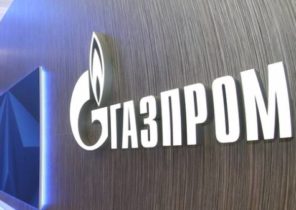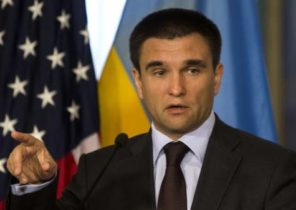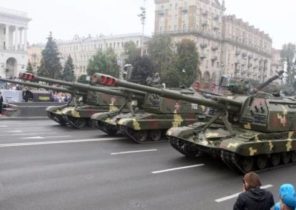If you listened to Wednesday’s speech by Boris Johnson, you might have an impression that the report about Russia was nothing other than an attempt to prevent Bracito. However, it is not — contrary to expectations, the report of the Commission on intelligence and security was much more original and important. A real discovery was the information not so much about Russia as about the intelligence services of the United Kingdom.
The main line of the report is not new and is not difficult to understand. Post-Soviet Russia seeks to be treated as a great power. To achieve this goal, it uses its intelligence agencies to harm Western countries, such as Britain. They use various tools — poisoning, cyber attacks, disinformation, influence and espionage. And, as admitted by the Minister of foreign Affairs of the UK Dominic Raab (Dominic Raab), speaking about the elections of 2019, the Russian special services do not leave these attempts.
However, the main revelation of the report on Russia concerns not this country and Britain. And it is that short-sighted British politicians allowed this to happen; that the intelligence services of the United Kingdom decided to just watch from the side. Three key phrases in the report that intelligence agencies believe British democracy too “sensitive issue” to interfere, they were so busy fighting terrorism that “distracted”; and all this happened because the government as a whole and not only the Agency, has contributed “in some way permissive positions” against Russia.
This failure is incredibly important. First, because it serves as evidence that the intelligence services of the United Kingdom has focused on hostile threats, despite clear visual evidence. And second, because it implies that the government has no clear understanding of the true tasks of the intelligence services, and that in the end prevented them from carrying out their work.
It was not always so. More than a century ago, when Mi-5 and Mi-6 was formed, the scope of their competences can be clearly formulated in two words: “defend your Kingdom”. These words remained current until until in 1989, the Mi-5, and five years and MI6, were not official organs.
Richard Haldane (Richard Haldane), who headed the Commission, which formed both services in 1909, spoke openly about the purpose of their creation. Before the services were set the task to determine the “sources and extent of foreign espionage, carried out at the moment in this country.” The intelligence services had to be carried out “systematically”. That’s what Mi-5, in particular, was engaged in throughout the twentieth century. But that’s what modern politics and services not made in the case of Russia.
There are three reasons. First — several governments in a row could not realize that Vladimir Putin seeks to ignite a new cold war model of the XXI century with the Western democracies. Instead, starting with Tony Blair (Tony Blair) and ending with Johnson, they readily opened the doors to the Russian authorities and the Russian money. In this respect, it is difficult to shift the blame on the shoulders of the intelligence services, although they could and should have been stricter to warn authorities about the threat. This policy was boundlessly naive.
The second reason is the burden of intelligence in the post-cold war period. It was distributed mainly on the fight against terrorism, especially after September 11, and at addressing the enduring problems associated with Northern Ireland, and the growing threat from the aggressively right-wing radicals. By 2008-2009, according to the report on Russia, only 3% of the activity of Mi-5 was aimed at countering “activity of hostile States.” By 2006, only 4% of the activities of the government communications Centre was focused on the former Soviet bloc — for similar reasons. In recent times this ratio has increased again, although the exact figures in the report were not called. Nevertheless, they indicate that in the match with Putin’s Russia on our gate was not the goalkeeper.
The third reason is the most difficult and complex. In 1909 “the Kingdom”, which was supposed to protect intelligence agencies, was a powerful argument. Today, in a liberal democracy it has become an anachronism. And yet, as stated in the report on the Russian security services “do not think that they bear the primary responsibility for the active protection of democratic processes in the United Kingdom”. On the question of the Commission on the possible role of Russia in a referendum on leaving the EU, they expressed “extreme concern” that the issue somehow relates to their competence.
On the one hand, it’s admirable. This proves how seriously the security services are allocated to them in accordance with the legislation responsibilities. This proves that they are as intelligence, scrupulous in relation to their own conduct in the world, requiring transparency and sound management. However, it also proves that they neglect a key part of their work and should clearly understand what they protect.
Consider the following very illustrative example. The potential collapse of the UK that could follow the referendum in Scotland in 2014, of course, does not fit the interests of the United Kingdom, being one of the most important national security issue of our country. Therefore, to address this problem have Mi-5, not least because of the split of our country is clearly interested in such a hostile power like Russia. Political pressure obviously. The majority in Scotland could vote for — and maybe I will. In this case, the security services clearly need to play a very delicate role, but one can hardly claim that they should do nothing.
State thinker scale Haldane would have been much more demanding of intelligence agencies and politicians. He believed in public authorities, organized on rational principles, and are oriented toward rational goals that can be achieved through a qualified public servants. What should be done by us.
It’s about time we start creative thinking about the role of intelligence required of the nation, but which are too often idle when the aggression from the Russian side. And yet, sadly for the UK, government reforms, so necessary in many fields, are far beyond the possibilities of idealist-Hegelian, as Haldane. On the contrary, they are in the hands of a vengeful petty vandal like Dominic Cummings, malicious push the party agenda, only reinforcing society’s hostility to public services, not helping to restore the much needed trust.







